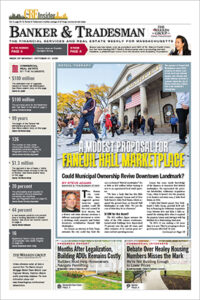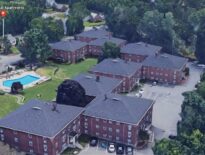There are 213 days between New Year’s Day and July 31, the final day for formal legislating in 2020. In that time, Massachusetts lawmakers hope to tackle what’s left on their 2019-2020 session to-do lists, in addition to whatever else crops up unexpectedly as the session wears on.
The House and Senate took care of some items on the agendas that Democratic leaders sketched out last winter (Gov. Charlie Baker, too), but a number of heady issues remain unaddressed with seven months until the real work ends and campaign season really picks up.
Seven months from the finish line, here’s a look at three major issues to watch during the second half of the 191st General Court, which officially kicked off with light sessions on New Year’s Day morning. Whether or not the legislature makes significant progress on these topics, they will be key factors in the final analysis of the two-year session’s accomplishments:
1) Transportation Revenue
All eyes are on the House in the new year as members prepare to take up a transportation revenue debate they delayed from the fall. Key lawmakers have hinted an increase in the state’s 24-cents-per-gallon gasoline tax will likely be a part of the package, but other proposals from higher fees on ride-hailing services to expanded roadway tolling may also be included in the bill.
Any increase to the gas tax would be the first in Massachusetts since 2013. That history will hang over the next round of action: lawmakers raised the tax three cents and indexed it to increase alongside inflation, but voters repealed the latter half through a ballot question one year later.
While the House prepares for the debate – no bill has been unveiled yet, but Speaker Robert DeLeo said he is aiming for a vote in January – Senate leaders have not shown their hand. President Karen Spilka has not yet committed to taking up the topic of transportation revenues in 2020, and the upper chamber’s Transportation Committee chair, Sen. Joseph Boncore, said he expects any consideration to come after an informal transportation working group finishes its work at an undetermined time. Gov. Charlie Baker, meanwhile, has already outlined his opposition to any gas tax increase and to congestion pricing, a strategy of altering roadway tolls at different times of day that many transportation advocates back.
Pressure has been growing on lawmakers to address the state’s wide-ranging transportation needs, particularly after a string of developments in 2019. The Baker administration’s study on roadway congestion concluded that already-bad traffic conditions are getting worse. A June derailment on the Red Line damaged aging MBTA infrastructure and created months of commuter headaches. An outside panel tapped in the wake of that incident concluded that T leaders have not prioritized safety culture, partly because of an overemphasis on reducing a repeated operating budget deficit while also pursuing capital investment.
With Baker asserting the state already has enough revenue to tackle transportation needs, Democrats face pressure to work across branches to make sure they have the votes to overcome any vetoes, as well as the challenge of coming up with a plan that the electorate supports and which won’t come back to haunt lawmakers when their names are up for reelection in November.
2) Energy Conservation in Buildings
Eighty-one state lawmakers rang in 2019 by resolving to pursue a suite of climate policies, including moving the state to net-zero carbon emissions by 2050. The year brought youth climate strikes and clean energy pushes from municipal and business leaders but not, ultimately, completed climate legislation.
The Senate is eyeing action in early 2020 on a bill that its Telecommunications, Utilities and Energy Committee chairman, Sen. Michael Barrett, has suggested will address clean energy along with emissions from vehicles and buildings. Sen. Marc Pacheco, who chairs the Senate Committee on Global Warming and Climate Change, has been beating the drum for action in that branch. The House, which passed a $1.3 billion borrowing bill in July to support municipal resiliency and adaptation projects, hasn’t indicated if its members and leadership plan to embark on other efforts to produce and pass major climate legislation. The House’s so-called GreenWorks bill, a priority of DeLeo’s, has been sitting since its unanimous passage before the Senate Bonding Committee, chaired by Sen. Michael Moore.
If a climate debate occurs in 2020, it will take place as South Shore residents and many elected officials continue to oppose the construction of a natural gas compressor station in Weymouth and as Massachusetts works with other states to build a regional cap-and-invest program aimed at cutting transportation emissions. The debate at the State House over actions that can be taken mostly within the state’s borders comes amidst reports of progress, and setbacks, in the global effort to reduce emissions that scientists say are fueling climate change and rising sea levels.
3) Housing Choice and Rent Control
In November 2018, eight months after the Housing Committee first endorsed Baker’s proposal to lower the local voting threshold for zoning changes, its co-chair Rep. Kevin Honan said the bill would come up “early in the next session.” A full year came and went with no action to advance Baker’s bill – or any other major housing production legislation – until the committee again favorably recommended it as part of a mid-December 2019 package.
As 2020 arrives, the push for action on housing now shifts to the two Ways and Means Committees and the Democrats that control them. The housing market in Massachusetts remains strained even after a $1.8 billion housing bond bill enacted in 2018, with the median home sale price up to $400,000 through October and report after report identifying a need for tens of thousands more units than the state currently has to offer.
Baker’s bill is not the only tool lawmakers can consider to address the challenge: the Housing Committee also advanced legislation to establish a statewide target of 427,000 new housing units by 2040, to require multifamily housing by right in MBTA communities, to increase residential density and more. In late January, the committee also plans to hear testimony on a push to revive local options for rent control, which was in place in three communities until a landlord-backed statewide ballot question banned the practice in 1994.
“The housing crisis has moved into the middle class and is creeping up beyond the middle class,” Rep. Nika Elugardo warned at an October rally in favor of her tenant protection legislation. “Now that so-called ‘everyday people’ are experiencing the pain of the housing crisis, people are beginning to question how we do business around here.”






